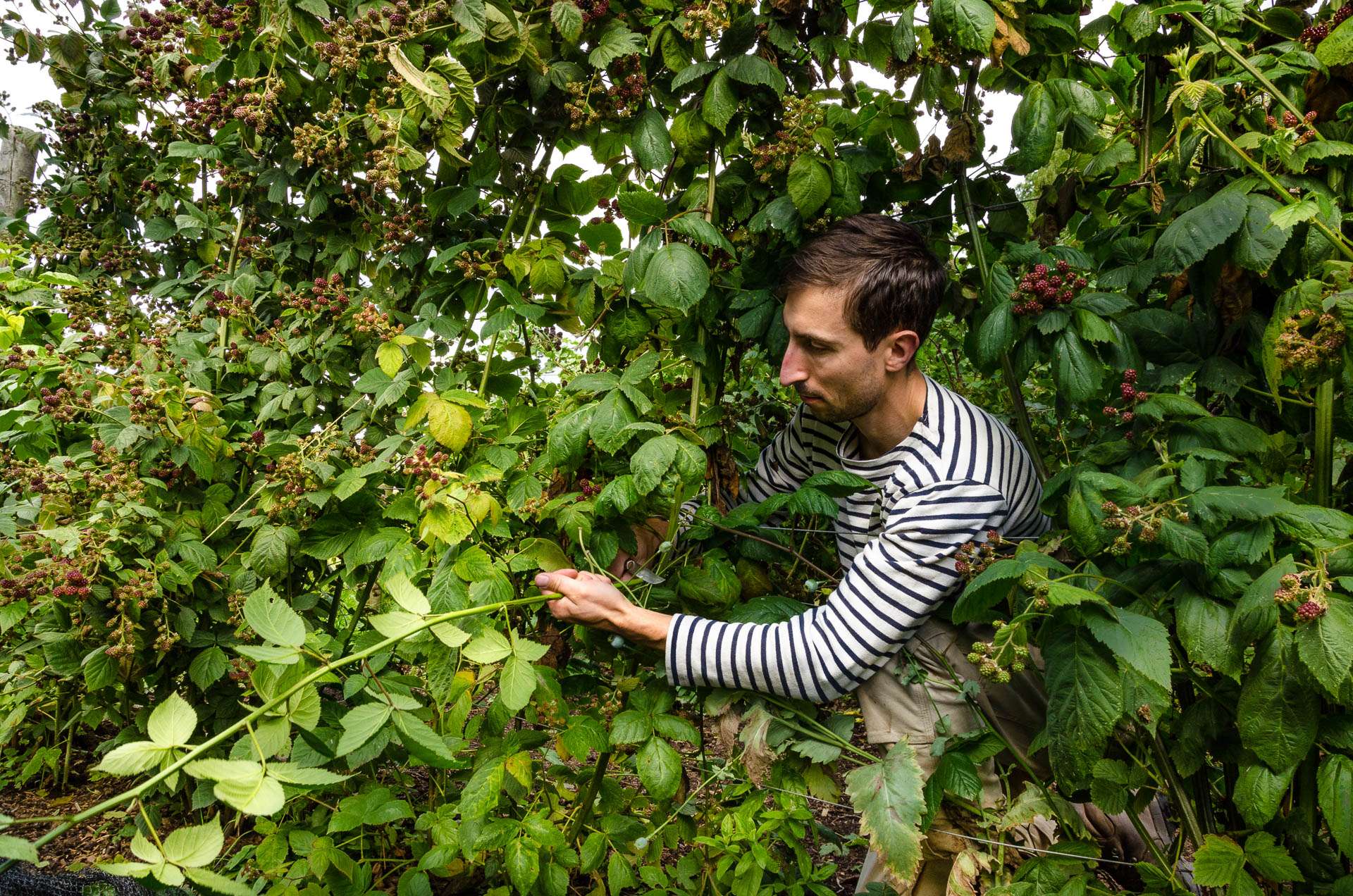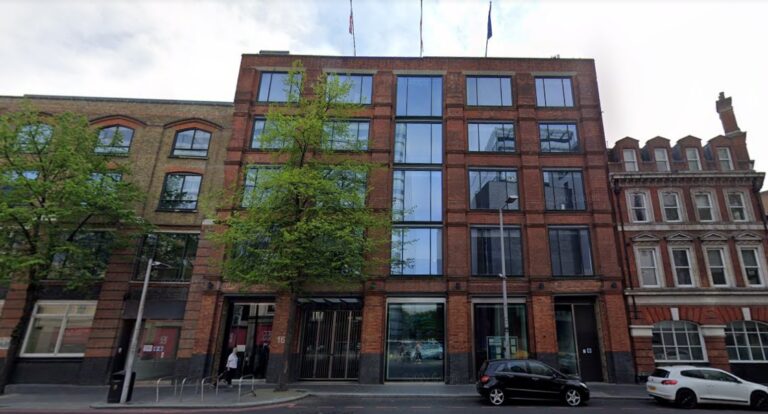With a flavour-first approach to drinks, the SE16 brand explains how their small-scale production line works – and where they find lemons the size of footballs
Not many businesses start “rather accidentally”, but Bermondsey drinks brand Gimlet was born when they joked about making some “fun drinks” for a private showing of their friend’s art, explains co-founder Harry Darby.
Alongside business partner Charles Gouldsbrough, they made “something out of the usual, which was more conceptual than flavour driven”.
One thing led to another, and Gimlet was born. Harry says: “It was always designed to revolve around our creative practices, both Charles and I are artists, illustrators, general creative practitioners – this is another arm of our creative work.”
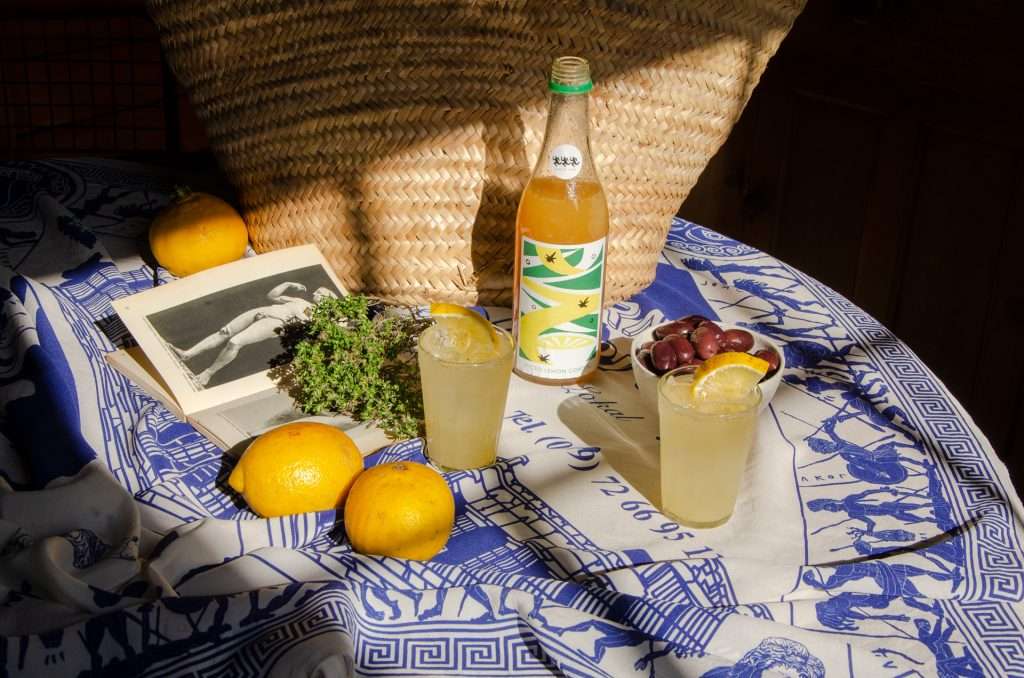
Gimlet Bar is the events leg of the company, which finds them doing collaborations with galleries, “but also for 10 people in their front room who want to have some nice drinks”, Harry explains. They have a light, moveable bar, which can be put up in situ in a “matter of moments”.
Then came the production and supply of cordials, vinegar and cider, and “other fun fermented things”, all made in their unit in SE16.
“The cordials came naturally out of the bar operation. We were designing our own drinks that you couldn’t have on the high street and which no other portable bar was doing. We were making really interesting syrups for non-alcoholic drinks,” he explains.
They utilise “either interesting suppliers or grow things ourselves to make flavours that taste really intense and complex”. They get their citrus fruits, which they can’t grow themselves, from a family business based in Sicily – it’s “unsprayed, unwaxed, organic citrus fruit”.
Of the process, Harry explains: “The fruit will arrive – it’s peeled, normally, by hand. One part of the process that isn’t recognised. It could be a few days’ work. Then we have a water power press, which presses all of the juice, we don’t buy anything from concentrate, it’s all fabricated onsite.”
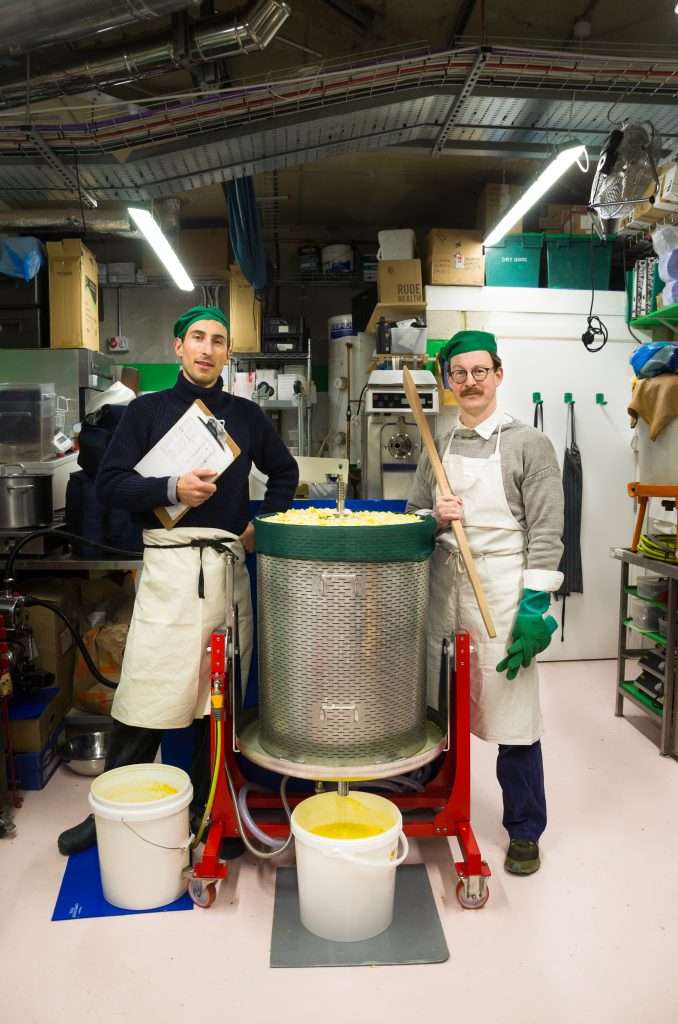
Harry used to work at 40 Maltby Street when it first opened, and also as a cheesemonger at Neal’s Yard Dairy before that. He became aware of a growing community of food producers under the umbrella of Spa Terminus, which is an area for food production and distribution where businesses can grow and develop with the security of long-term tenure.
He says that “it’s allowed us – and other businesses – to flourish in the area. And being able to open on Saturdays has given us that face-to-face interaction with locals and customers who buy our products, and we can hear the reviews directly from them”.
In the spring, their annual batch of spiced lemon is made with beautiful Amalfi lemons: “We take all of their second-class fruit, which is all the fruit that doesn’t meet the expectations of the people in a shop. Sometimes I’ll be peeling a lemon the size of a small football, you wouldn’t believe it. It’s very romantic, you get very caught up in what fruit actually looks like when it’s on the tree. We receive lemons that are misshapen and quite wonderful looking.”
Another interesting part of Gimlet is the vinegar production. “A lot of people buy it every other week to try seasonal flavours, orange or ginger or quince, you can make a very delicious drink with just a small amount and then dilute it with sparkling water. The dilution reduces the intense acidity and frees up the flavour contained within the vinegar. That to me is a simple but very satisfying and delicious drink,” says Harry.
Taking it a step further, Gimlet offers recipes to build the vinegar into cocktails, alcoholic or non-alcoholic, to “build layers of complexity”.
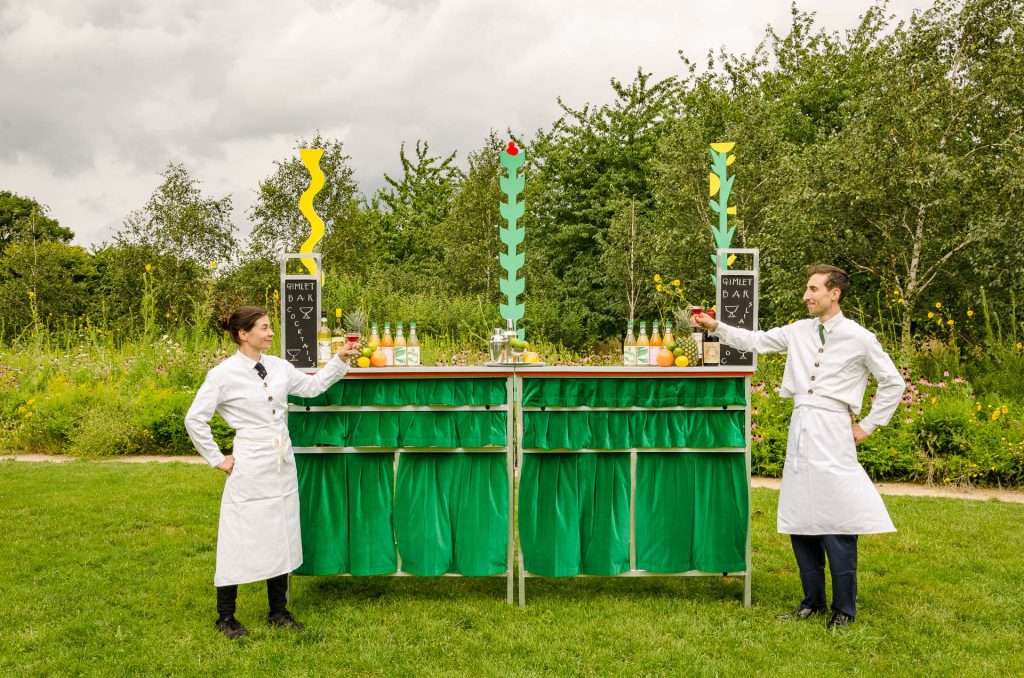
“Particularly if you’re not drinking. It crucially adds acidity,” Harry explains. “But it’s another way to be playful with your ingredients. I’d often pair a vinegar with a cordial we have – perhaps, for example, a bitter orange and then throw in some ginger vinegar. I might add half a glass of tonic, maybe a squeeze of lime, and top it up with soda and a good strong, aromatic garnish. Then you’re able to make a really special drink. The thing you’re missing when you don’t drink is that fermented flavour, and that’s what the vinegar does, it gives you the sensation of fermentation.”
When it comes to making the Gimlet cider, it’s Harry’s personal project – he picks apples by hand from an orchard. He makes just under 3,000 bottles of completely natural cider, 100% apple, no additives, “it’s the cider that I want to drink”.
The small-scale operation of Gimlet is what makes it special. “The moment you change the scale, it becomes hard to get the ingredients and you have to buy from multiple different sources. And you might sacrifice the manual process, and that has a lot to do with how the drinks taste,” he says.
And it’s “always been about the manual process and being interested with having your hands in the mess” for him – “the moment you become just an administrator, you start to lose some of that magic”.
And you wouldn’t want to lose the magic and wonder that Gimlet has created through their tasty tipples over the years.
2 Spa Arch Lane, SE16 3AG


